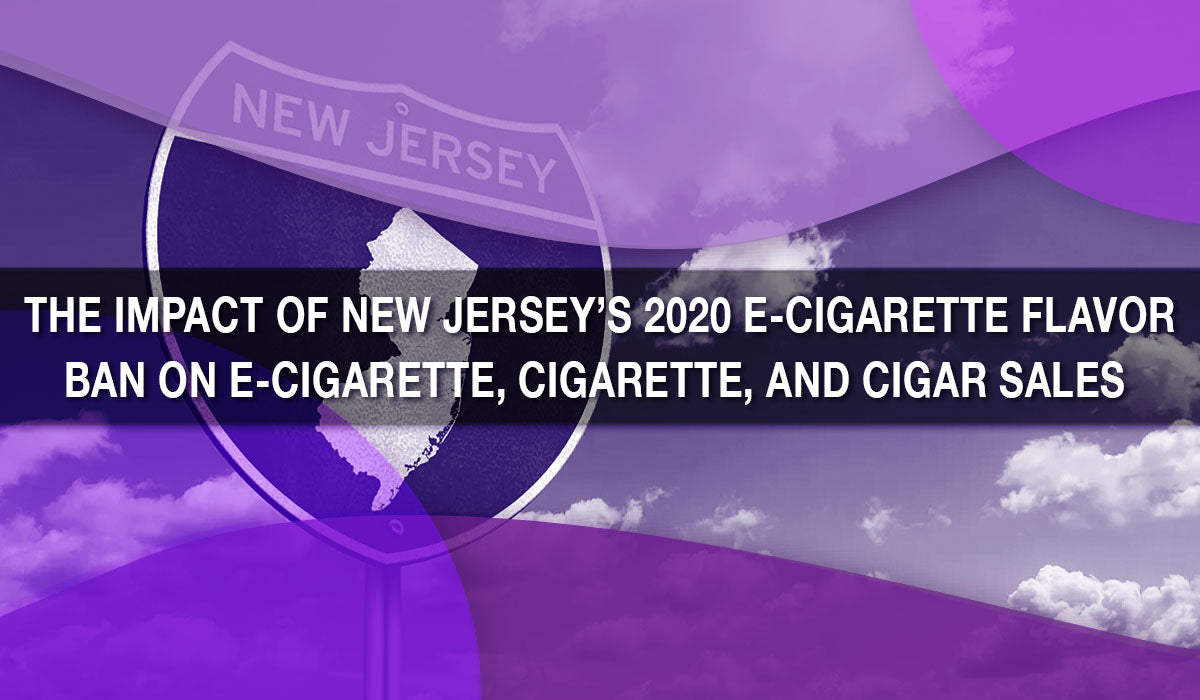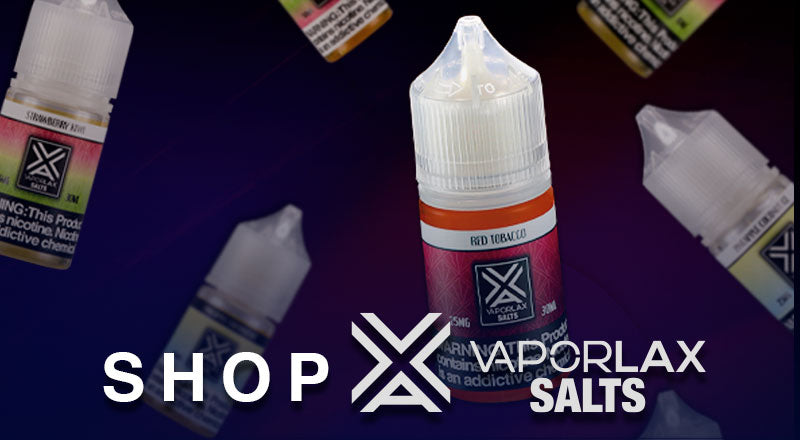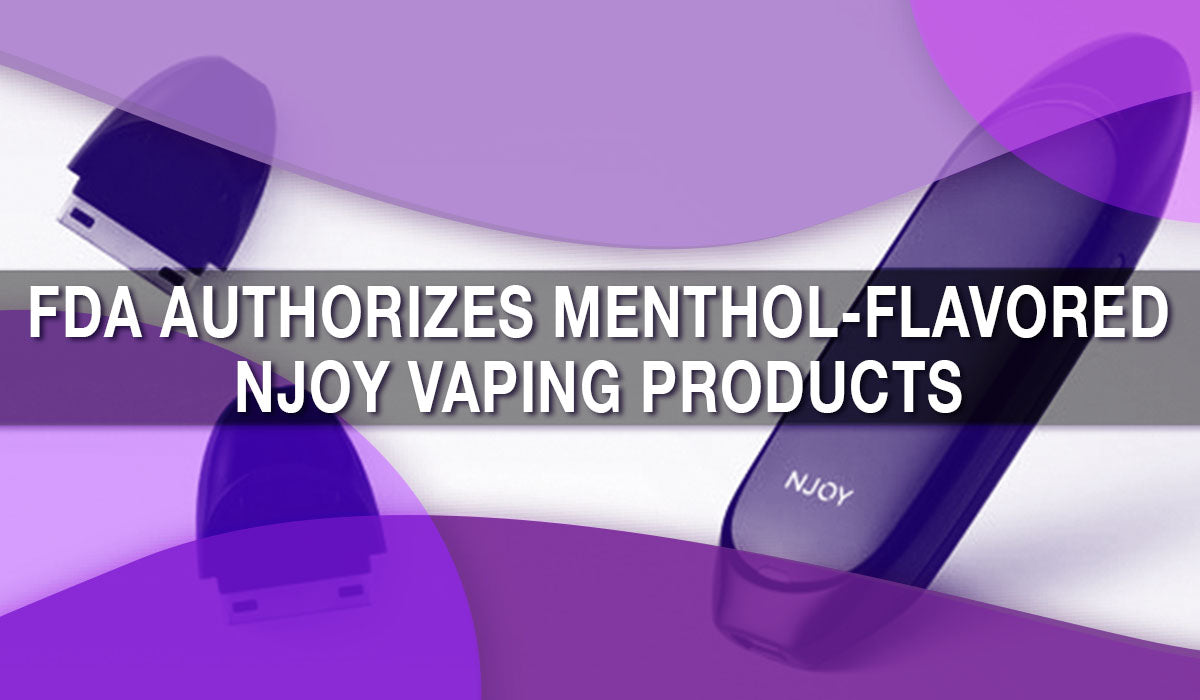
The Impact of New Jersey’s 2020 E-Cigarette Flavor Ban on E-Cigarette, Cigarette, and Cigar Sales
On April 20, 2020, New Jersey enacted a comprehensive ban on the sale of flavored e-cigarettes, aiming to curb youth vaping. A study Published by Oxford University Press on behalf of the Society for Research on Nicotine and Tobacco shows the real-world impact of such prohibition.
This study compares sales of e-cigarettes, cigarettes, and cigars before and after the law to assess its effectiveness and unintended consequences.
Methods
The study analyzed biweekly retailer scanner sales data from New Jersey convenience stores, covering the period from August 2019 to December 2020. Using Joinpoint regression analysis, we assessed sales trends for:
- Cigarettes (non-menthol, menthol)
- Cigars (unflavored, flavored)
- E-cigarettes (unflavored, fruit/sweet/concept flavor, menthol flavor)
Sales trends were observed over 36 weeks before and 36 weeks after the implementation of the flavored e-cigarette ban.
Results
The findings reveal significant shifts in product sales following the ban:
- Flavored E-Cigarettes: Sales of flavored e-cigarettes (excluding menthol) significantly decreased. Menthol e-cigarette sales initially increased until the ban took effect, after which they rapidly declined through May 2020, then slowed.
- Unflavored E-Cigarettes: Sales of unflavored e-cigarettes declined through September 2019 but then grew modestly until the ban, after which they saw a significant increase.
- Cigars: Sales of flavored cigars increased between March and May 2020, then declined. Non-flavored cigar sales increased between mid-February and early July 2020, then also declined.
- Cigarettes: Cigarette sales, which had been decreasing prior to the flavored e-cigarette ban, significantly increased until June 2020. Overall, there was no significant trend in the average biweekly percent change for cigarette sales.
The data indicate that New Jersey’s 2020 flavored e-cigarette ban had several immediate impacts on product sales, revealing the complexities and potential pitfalls of such prohibitionist policies:
“Flavored e-cigarette sales were declining prior to the ban but the pace of the decline accelerated following federal and state restrictions on flavored e-cigarette sales, then slowed by the second half of 2020, with a brief period of increased cigarette and cigar sales immediately following the ban.”
Implications
The findings suggest that New Jersey’s e-cigarette flavor ban may have counterproductive effects. The temporary spike in cigarette and cigar sales following the ban highlights the potential for such prohibitions to drive consumers back to more dangerous forms of tobacco.
Prohibitionist policies, like the flavored e-cigarette ban, often fail to account for the complex behaviors and preferences of consumers. Instead of curbing tobacco use, these bans may simply redirect users towards other harmful products, undermining public health objectives.
A Critical Look at Prohibition
The New Jersey case illustrates the limitations and unintended consequences of flavor bans. Rather than reducing overall tobacco use, these policies can lead to increased use of combustible tobacco products. This is a terrible outcome. As Cancer Research UK explains, “Because vaping is far less harmful than smoking, your health could benefit from switching from smoking to vaping. And you will reduce your risk of getting cancer.”
A policy that increases the sales and use of combustible cigarettes calls into question the efficacy of prohibitionist approaches to public health regulation.
Policymakers must reconsider the wisdom of blanket bans and instead focus on harm reduction strategies. Providing access to superior alternatives, such as flavored e-cigarettes, while fairly regulating their sale and use, could be a more balanced approach. This strategy acknowledges the preferences of adult users and mitigates the risk of reverting to more harmful products.
While the goal of reducing youth vaping is essential, the method of achieving it through flavor bans is deeply flawed. A more nuanced, harm-reduction-focused approach is crucial to avoid exacerbating the very public health issues these bans aim to solve.









Leave a comment
This site is protected by hCaptcha and the hCaptcha Privacy Policy and Terms of Service apply.